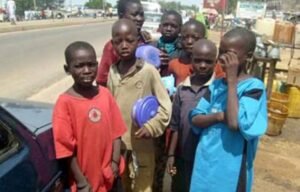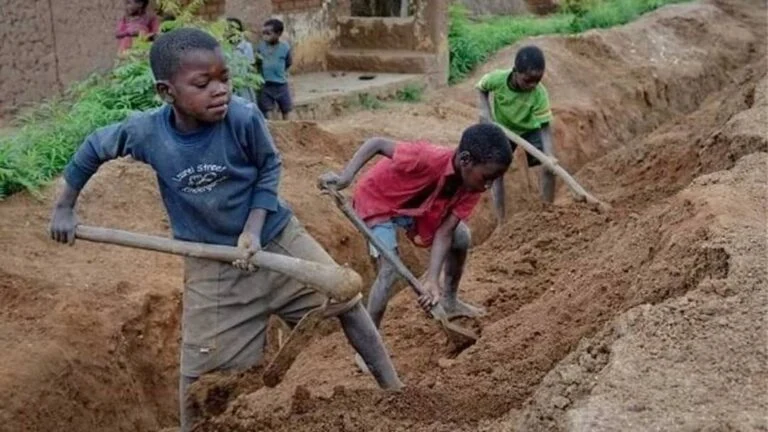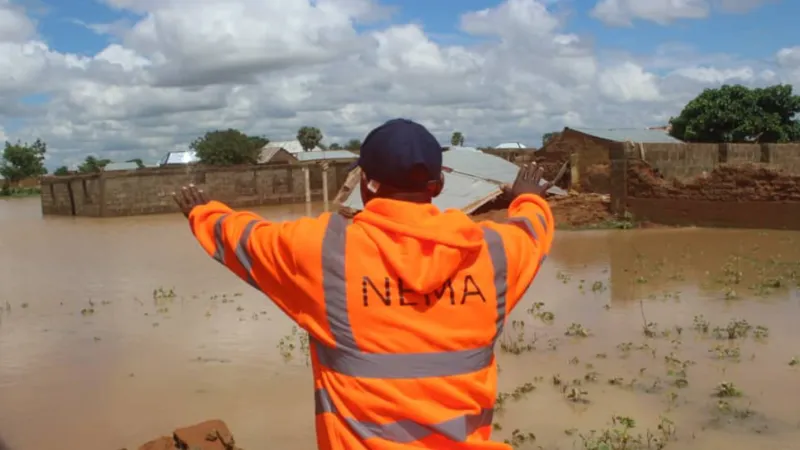With voices from parents, teachers, healthcare workers, and the children themselves on Children’s Day, Korede Abdullah, in this report offers a poignant look at the challenges—and hopes—shaping the future of the nation’s youngest citizens.
As nations across the globe celebrated Children’s Day on May 27, President Bola Ahmed Tinubu of Nigeria reaffirmed his administration’s commitment to securing a brighter future for children.
But across Africa, voices from academia, civil society, and development sectors warn that celebrations alone cannot mask the continent’s worsening child welfare crisis.
A Call to End Bullying, Build Safe Communities
In a statement he issued on Tuesday, President Tinubu emphasized the theme of this year’s Children’s Day, “Stand Up, Speak Up: Building a Bullying-Free Generation.” He called for a cultural shift in how children are treated in both real and virtual spaces.
“A culture where every child feels safe, respected, and heard, both in physical spaces and digital communities… Just to be clear, violence, bullying, and neglect have no place in the Nigeria of today,” the president said.
However, activists argue that digital safety remains an under-addressed issue, especially with increasing reports of cyberbullying and online sexual exploitation of minors.

Access to Education, Healthcare, and Safety
President Tinubu described children as “the beacon of our nation’s future,” stressing his administration’s drive to improve access to education, healthcare, and protection from exploitation.
In particular, he cited ongoing efforts to harmonize Nigeria’s Child Rights Act across all states and expand social safety programs.
Nevertheless, the reality on the ground remains bleak for many Nigerian children. The country still ranks among the highest globally in out-of-school children, with over 10.5 million school-aged children not attending school, according to recent UNESCO data.
UNICEF Highlights a ‘Generational Emergency’
According to UNICEF’s 2024 report, over 250 million children in Sub-Saharan Africa lack access to basic education and health services. More than 30% are stunted due to malnutrition, while millions more face displacement from conflict and climate crises.
“We are dealing with a generational emergency,” says Dr. Amina Keita, a child development expert based in Senegal.
“In rural communities, children are still walking miles to school and living without clean water or electricity. The celebration of Children’s Day must go beyond parades—it must inspire policy shifts and community-level impact”, Keita noted.
Almajiri Phenomenon
The centuries-old Almajiri practice in the northern parts of Nigeria has evolved in ways that expose children to widespread neglect and hardship.
Observers note that many Almajirai are now found begging on the streets for survival, lacking access to basic healthcare, quality education, and proper shelter.
“What began as a noble pursuit of Islamic knowledge has turned into a humanitarian crisis,” said Dr. Fatima Isa, a child welfare advocate based in Kano. Reports of abuse, trafficking, and radicalization among vulnerable Almajirai have added a layer of urgency to the debate.
Efforts to reform the system—ranging from state-sponsored integration of Quranic and secular education to rehabilitation initiatives by non-governmental organizations—have faced cultural resistance and logistical obstacles. “You can’t change a tradition overnight without offering better alternatives,” explained Ahmed Musa, an Islamic studies scholar.
As northern Nigeria grapples with deep-seated poverty and weak infrastructure, the Almajiri issue continues to reflect broader challenges of governance, education reform, and cultural sensitivity.
The government’s struggle to intervene effectively without alienating religious leaders remains a key test of its commitment to child welfare and social development.
Gaps Between Policy and Reality
President Tinubu’s speech touched on noble goals, but critics point to major implementation gaps. Enforcement of child protection laws remains inconsistent across Nigerian states, and local governments often lack the capacity or political will to uphold children’s rights.
“There’s a gap between legal frameworks and what happens on the ground,” noted Olusegun Ojo, an education policy analyst in Lagos. “Children are still trafficked for labor, and schools in conflict zones are under threat”, he added.
The Nigerian Security Tracker reports that over 1,600 schoolchildren have been abducted in Nigeria since 2014, with many still missing or traumatized.
Africa’s Children Face Compounding Crises
Beyond Nigeria, the situation mirrors broader continental challenges. Across East and Central Africa, ongoing conflicts in Sudan, the Democratic Republic of Congo, and the Sahel region have led to the recruitment of child soldiers, forced displacements, and school closures.
The African Committee of Experts on the Rights and Welfare of the Child (ACERWC) warns that climate-induced disasters are further compounding vulnerabilities.
Droughts in the Horn of Africa, for example, have decimated livelihoods, pushing children into begging, street hawking, and early marriage.
International Agencies Step Up Interventions
Amid the crisis, international agencies have intensified interventions. UNICEF and Save the Children are rolling out large-scale school feeding programs, vaccination drives, and cash transfer initiatives targeting the most vulnerable children.
UNICEF Nigeria, for instance, recently scaled up its immunization efforts in northern states and partnered with local NGOs to provide psychosocial support to children displaced by Boko Haram insurgency.
“We are committed to ensuring that every child survives and thrives,” said UNICEF’s Nigeria Representative, Cristian Munduate, during a recent press briefing.
Funding Gaps and the Role of Global Partners
The global community is also responding with financial pledges. The European Union has earmarked €150 million in aid for child health and nutrition projects in West Africa, while the World Bank’s “Sahel Human Development Project” is funding long-term school rehabilitation and maternal health initiatives.
Still, experts caution that such efforts must go beyond short-term aid. “It’s not just about humanitarian assistance—it’s about systemic transformation,” says Prof. Kwame Boateng, a Ghanaian development economist. “Education must be digitized, health systems must be child-centered, and youth policies must be long-term.”
Mental Health: The Overlooked Crisis
One critical but often overlooked dimension is mental health. Conflict, abuse, and poverty have led to rising rates of trauma and depression among African children, yet services remain scarce.
“There are only a handful of child psychologists in many African countries,” says Dr. Ayobami Sanda, a clinical psychologist who spoke with Africa Health Report (AHR) in Lagos. “We’re seeing children suffer silently from post-traumatic stress and anxiety, and this affects their learning and development.”
Efforts to mainstream mental health support in schools are ongoing but are hindered by cultural stigma and lack of trained professionals.
Voices of the Children: Demanding More Than a Day
Across the continent, children themselves are beginning to speak out. In Kenya, a coalition of schoolchildren delivered a petition to Parliament demanding safer school environments. In Nigeria, child-rights clubs are emerging in secondary schools, teaching students how to advocate for their rights.
“We are not just victims—we are voices,” said 13-year-old Temitope Alade at a Children’s Day event in Abuja. “We want clean water, good books, safe schools, and dreams that don’t die in poverty.”
Hope, But No Time to Waste
As the Children’s Day celebrations fade, the call for action grows louder. President Tinubu’s remarks may resonate with goodwill, but Africa’s future hinges on what is done after the speeches.
“Hope is not a strategy,” says Keita. “Our children deserve more than promises—they deserve a continent that prioritizes their growth, rights, and protection every single day.”



